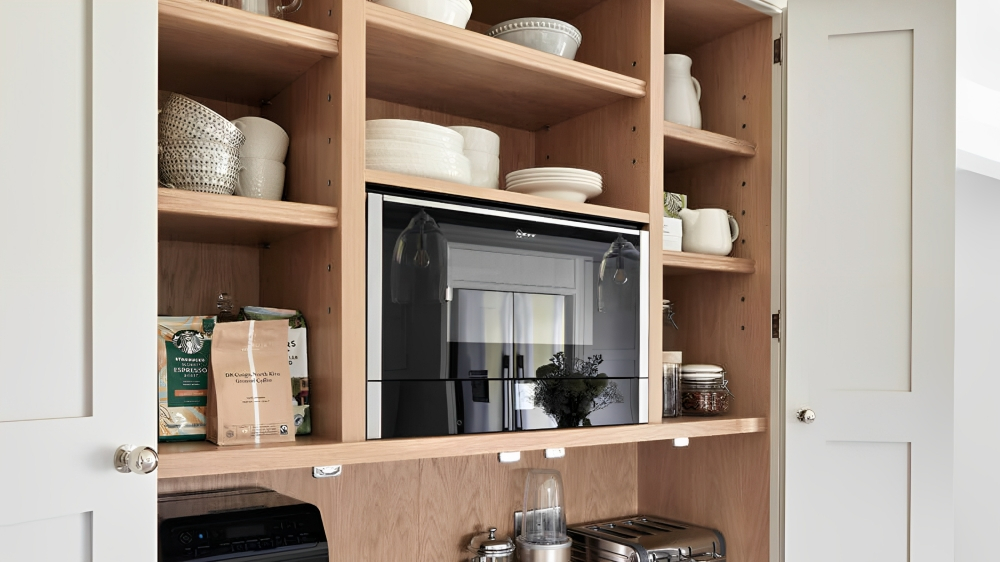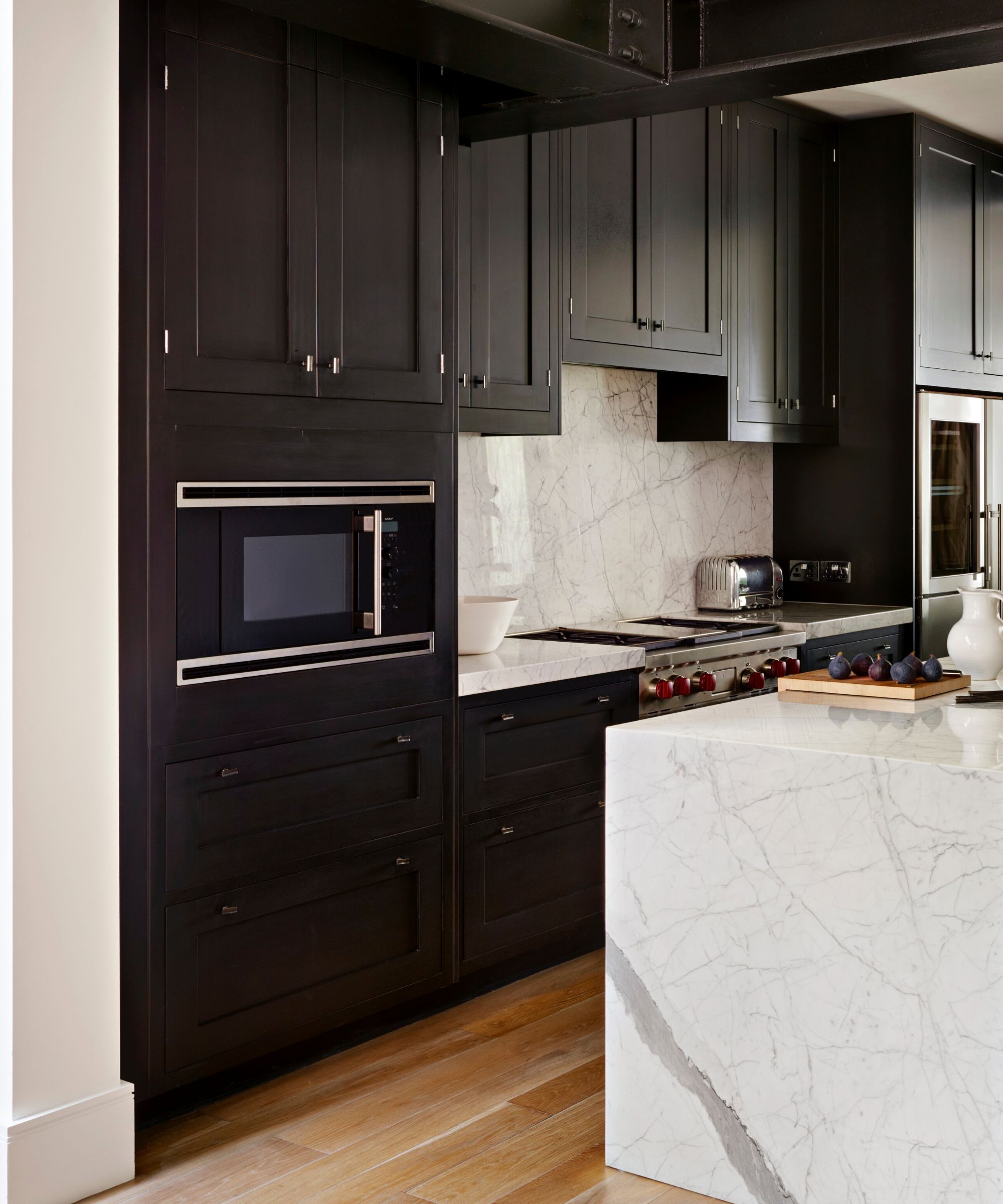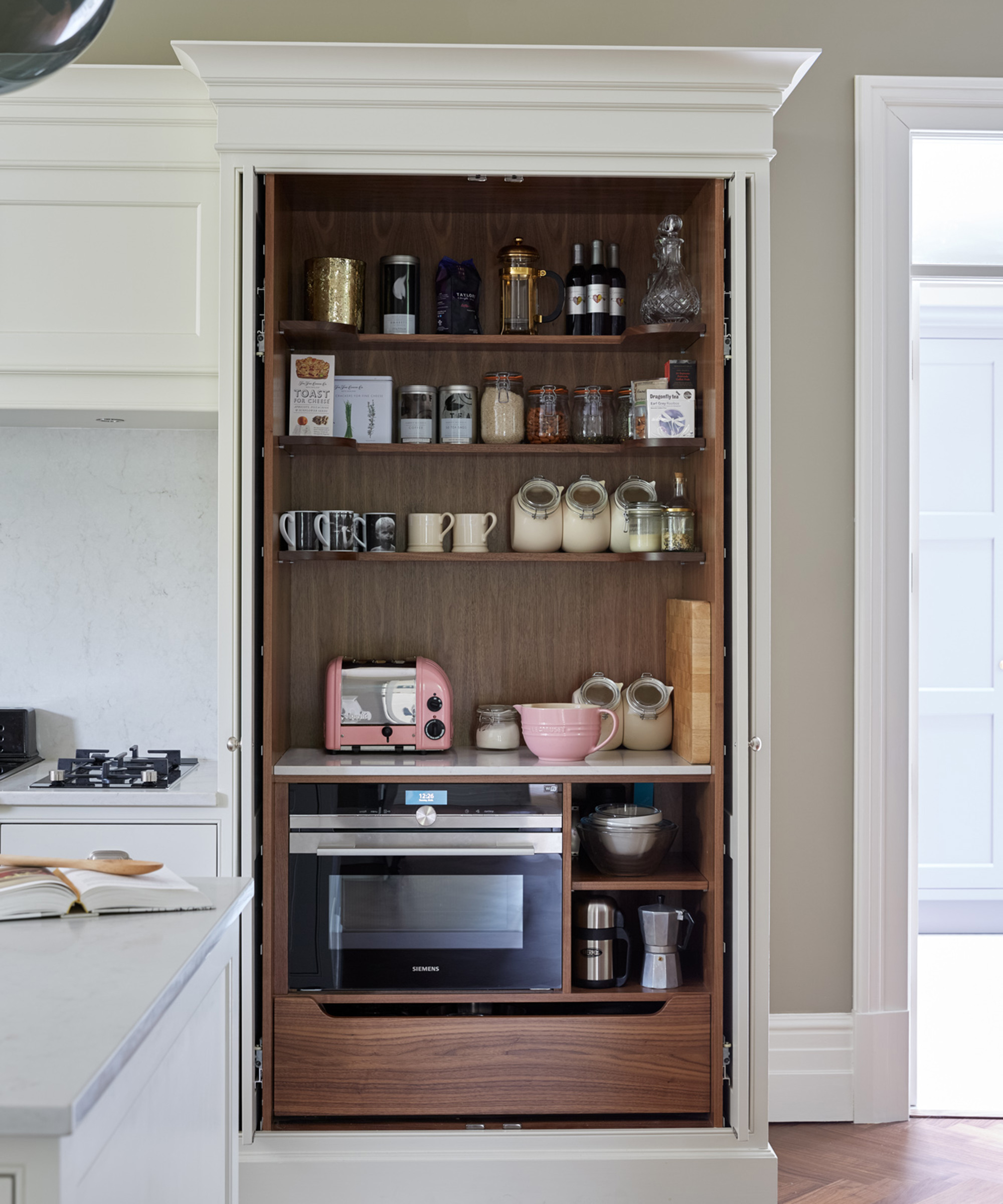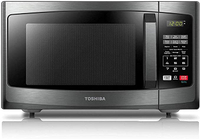Do you really need a microwave? Chefs and home cooks share their thoughts on this everyday convenience
Microwaves may seem like a kitchen staple, but are they really necessary for everyone?


We would be hard pushed to find a kitchen without a microwave, but as the way we use our kitchens changes, and new appliances take the spotlight, do we really need microwaves?
Microwaves have always been known for their convenience, but with the recent microwave vs air fryer debate hotting up, and the bulky machines difficult to find a convenient home for, more of us are left questioning if they still have a place in our space.
Here, we have asked professional chefs and home cooks for their thoughts on whether we need a microwave or not, and why this staple machine may be on its way out.
Do you really need a microwave?
Once you have worked out where to put your microwave in the kitchen, you will be glad you invested in one of these exceptional kitchen appliances. After all, the versatile microwave is one of many things home cooks should still have in their kitchens, according to the pros, earning their place thanks to their versatility.
Here is why chefs think that you should keep hold of yours:
Why you might want a microwave

1. They quickly reheat leftovers
There is no denying that the microwave is the king of leftovers, quickly reheating food for lunch the next day to prevent food waste (and avoid having to wash up another pot). This, for many including Farwin Simaak, cook and founder of online recipe site, Love and Other Spices, is reason enough to keep a hold of the appliance.
‘I also use it to heat my toddler's milk within seconds and at least twice a day. This saves me time and washing up pots in comparison to if I were to heat them on the stove – I just love how easy it is!’

Originally from Sri Lanka, Farwin loves to share her love for cooking with others, developing Love and Other Spices to help others try cooking out of their comfort zone and try new things.
2. They are cost-effective
At a time when more of us are trying to cut down energy use and save money at home than ever, microwaves come out on top as one of the cheapest kitchen appliances to run, with these machines known for their energy efficiency compared to other cooking appliances.
Imene Senouci, food blogger at Ambitious Foodie explains that this is because they consume less energy and generate less heat, also making them an environmentally-friendly choice,’ she adds.
‘If you're looking to minimize your carbon footprint and reduce energy costs, a microwave can play a role in achieving those goals!’
TOSHIBA Countertop Microwave Oven | $79.81 at Amazon
This combination microwave oven is a great addition to smaller kitchens and is top-rated by verified users.
3. They're a good substitute for an electric kettle
Although commonplace in Europe, most Americans still do not have an electric kettle for boiling water rapidly. Although kettles are more efficient for this job than a microwave, microwaves are still better than boiling a pot on the stove. They are also quicker for that last-minute cup of tea, points out Farwin Simaak, home cook and recipe developer. Especially if you do not have a coffee maker.
4. They can help to defrost food
Many chefs will tell you that defrosting food is best done slowly on the bottom shelf of the refrigerator to keep your food safe and prevent food poisoning, but a microwave can be used in a pinch to help thaw out food you forget to get out the night before, says Natalia Thompson, recipe creator and CEO of Flavorful Home. It may also be used to prepare ingredients.
Beyond meat, they can also be useful to help you soften butter, cheese, and chocolate prior to adding these ingredients to your recipes or baking, she adds.
Why you don't need a microwave
Nevertheless, all machines come with some downsides, and the humble microwave is far from perfect. Their bulky size and often outdated designs, for one, are reason enough to want to hide it away in an appliance garage rather than let it sit on your kitchen counter.
But the experts have some good reasons for leaving this appliance behind and suggest that, despite their convenience, they might not be for everybody:

1. They produce lower-quality meals
One of the stand-out features of other countertop appliances, such as air fryers, is their ability to produce great-tasting food quickly – something that the microwave often lacks.
Elisa Lyew, chef and owner of Alisa’s Love Bites, a gluten-free bakery in NYC is all in favor of getting rid of the microwave if it means you are forced to reheat food or cook on the stove as it results in tastier food, heated through more evenly without any unexpected sogginess.
‘Stovetop and oven cooking/reheating are superior since you are better able to control temperatures, cooking techniques, and heat is more evenly distributed,’ she explains. ‘Microwaves more often than not produce soggy, unappetizing meals. Commonly microwaved foods, such as popcorn, can be easily made on the stove, with better end results!’

Elisa’s Love Bites was founded by Chef Elisa Lyew, a NYC pastry chef who decided to shake things up after years spent honing her skills in several renowned restaurants. Elisa’s time as a restaurant pastry chef opened her eyes to the tremendous need for dessert options that are not detrimental to the health of the public.
2. Everything you cook in a microwave can be done using existing appliances
Microwaves are often there purely for convenience as there is nothing they can do that other existing kitchen appliances such as a stove can't do already.
Arianna Foster, nutritionist at Carnivore Style. Argues that removing the microwave from the scenario often forces home cooks or learners to prioritize traditional cooking methods, leading to improved kitchen skills, tastier food, a wider culinary palette, and a more authentic cooking experience.
Because of this, they are far from a necessity, she determines.
FAQs
Why does microwaved food taste different?
Microwaves heat food in a different way to air fryers or conventional ovens, meaning the food retains a lot more moisture, affecting both the taste and the texture. What a microwave offers in speed, it often lets down in terms of taste. Because of this, they are ideal for quickly melting items, or heating up some leftovers, but there are often other tools, such as stoves or air fryers, that can do this just as easily, and with better results.
Is it easy to live without a microwave?
While it may take some adjustment to get used to living without a microwave, it is relatively easy to do so. There is very little you can cook in a microwave that you cannot cook using something else in your kitchen, such as a stove or oven, with the exception of some microwave meals. However, if you are a regular home cook, you can usually say goodbye to your microwave if you want to save space.
If you are an avid home chef, you may find a microwave unnecessary, while those of us with less culinary flare rely on a microwave a little more. If you don't find yourself using your microwave very often, consider moving it from your kitchen to storage for a while to see how you do without it. If you don't miss it, get rid of it to help declutter your countertops!
Sign up to the Homes & Gardens newsletter
Design expertise in your inbox – from inspiring decorating ideas and beautiful celebrity homes to practical gardening advice and shopping round-ups.

Chiana has been at Homes & Gardens for two years and is our resident 'queen' of non-toxic living. She spends most of her time producing content for the Solved section of the website, helping readers get the most out of their homes through clever decluttering, cleaning, and tidying tips. She was named one of Fixr's top home improvement journalists in 2024.
-
 How to grow impatiens – garden experts reveal the secrets to growing this shade-tolerant, sparkling summer plant
How to grow impatiens – garden experts reveal the secrets to growing this shade-tolerant, sparkling summer plantBoth 'Busy Lizzie' and 'New Guinea' impatiens can thrive in shady yards
By Ellen Wells Published
-
 Charli XCX's dining room is a 'treasure-trove' of one-of-a-kind pieces – it's the most unique hosting space I've ever seen (and surprisingly replicable)
Charli XCX's dining room is a 'treasure-trove' of one-of-a-kind pieces – it's the most unique hosting space I've ever seen (and surprisingly replicable)The singer's Tudor-style dining room features eclectic furnishings, a mix of patterns and bright colors that all work together beautifully
By Hannah Ziegler Published
